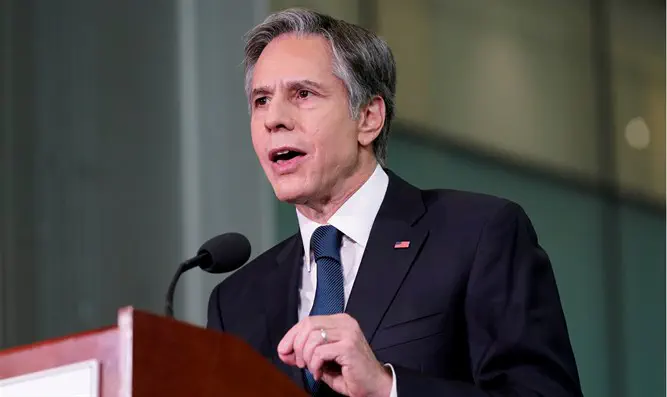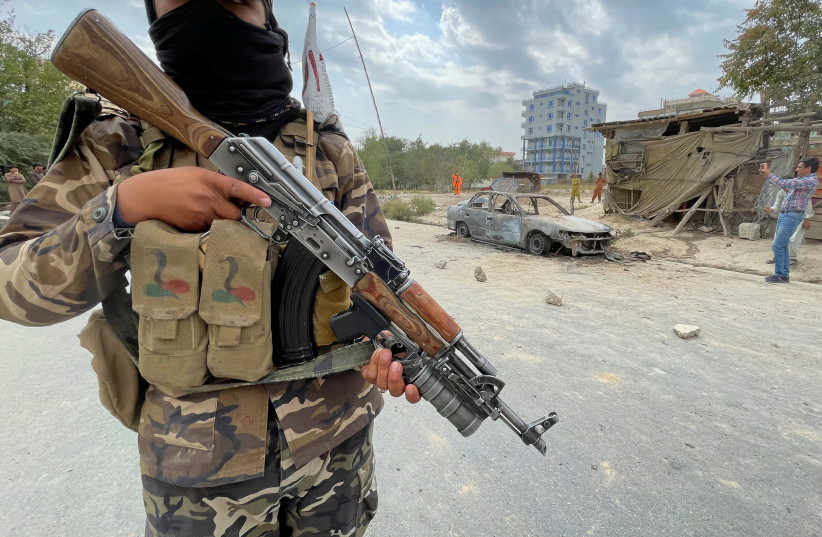by Prof. Donna Robinson Divine
Efforts to divert attention from what is actually happening have thus far not succeeded.
 |
| Antony Blinken Reuters |
(JNS) Of all the crises confronting President Joe Biden and his national security team, nothing is more surprising than the one unfolding in the media depicting Afghanistan’s descent into chaos. The administration may have anticipated losses in Afghanistan but never expected to lose control over the narrative of how people would understand the decision to draw down troops, remove weapons, and close American and NATO military operations.
This administration has enjoyed enthusiastic and uncritical praise in print, on air and across social media for its policies even if their enactment belied official descriptions. Their language created our reality curating accounts in newspapers, splicing together scenes on television and posting catchy phrases on Facebook and Twitter. But this time, the statements issued by the White House were overpowered by screenshots of panic and turmoil turning a poorly planned American withdrawal into a catastrophe and a display of ineptitude that could not be hidden or denied.
Failure was evident and incompetence was everywhere in a strategy that left soldiers and civilians exposed to deadly attacks and assaults. Interestingly, the administration sought to ramp up support for its insistence that a total withdrawal halted an inevitable continuous escalation by citing the emotional toll on the members of the administration. To Chris Wallace’s question on Fox News on Sunday about whether the president actually knew what was going on, U.S Secretary of State Anthony Blinken answered with these words: “This was an incredibly emotional time for many of us.”
Such efforts to divert attention from what is actually happening have thus far not succeeded. Rather than push a narrative and matching reality to it, the media seems willing to persist in examining events and interrogating the decisions that helped produce them. When it publishes an accurate account of what is happening, it matters—particularly in a democracy where people need facts to be able to hold officials accountable for their actions. But however laudable the media efforts, they are blunted primarily because too many are still filtered through a vocabulary beholden more to metaphors aligned with an acceptable set of social norms than to opening up a meticulous investigation of policies and decisions.
One obvious example strikingly illustrates the challenges: The hasty retreat has been explained and justified as the only way to stop the so-called era of endless wars, a fantasy woven around magical thinking about the international landscape in which an America must operate no matter the president or the objectives. The American pullout from Afghanistan that left stockpiles of weapons in the country and tens of thousands of people to suffer the consequences of having worked with the United States is likely to intensify violence in the country and more than likely transport it beyond its borders.
What accounts for the tendency to give life to words so at odds with deeds? Reality is complex and calls for hard work to understand, but a narrative can instantly produce clear meaning particularly if it contains familiar verbal echoes. Talking about the American military fighting in a country called the “graveyard of empires” links the U.S. mission to empire-building imperialism. Thus, ending what is now linguistically connected to this evil lends credence to the notion that the retreat—hasty or not—advances the right values and the right cause.
Never mind that the terms elide over the fact that the military offensive was set in motion by attacks on the U.S. homeland and supported by the NATO alliance. Or, alternatively, think of how American objectives are said aimed solely at Al-Qaeda without mentioning the interactions between terrorist movements and the governments of one or another country that funds them and allows them to set up headquarters and training camps on their soil, to say nothing of launching operations from within their borders.
Leaving Afghanistan doesn’t destroy the dangers posed by terrorism, just as it does nothing to diminish its hostility to Americans and, most urgently, to the people we abandoned, including the women forced back into their homes to stay alive.
Language shapes the very assumptions we often take for facts. Terms deployed to advance a cause give a simplistic and false picture of the issues even if they are claimed, as so often the case, to be expressed in service for the voiceless and powerless. A narrative should serve as a framework for empirical analysis and not as a signal of moral virtue.
Make no mistake—these linguistic inversions are not intellectually harmless. George Orwell put it well: “If thought corrupts language, language can also corrupt thought.”
Prof. Donna Robinson Divinee is Morningstar Family Professor of Jewish Studies and Professor of Government at Emerita Smith College.
Source: https://www.israelnationalnews.com/News/News.aspx/313297











